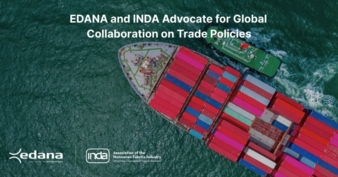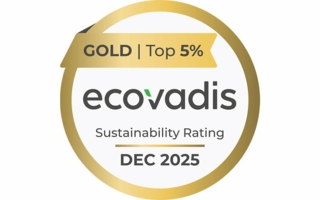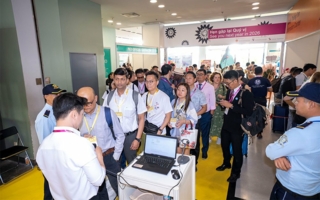15/04/2025 – US Tariffs
Edana and Inda advocate for collaboration on trade policies
Edana, the global association and voice representing the nonwovens and related industries, and Inda, the Association of the Nonwoven Fabrics Industry, jointly express their concerns regarding escalating trade tensions.
Both associations recognize the potential for countermeasures and reciprocal tariffs to negatively impact the nonwovens industry globally. The nonwovens industry is a global sector, with many companies having significant operations worldwide, including in Europe and the United States. It is crucial to avoid a harmful cycle of retaliatory tariffs that could have a net negative effect on economies worldwide.
Policies that foster collaboration and free trade
Both Edana and Inda urge policymakers to prioritize negotiations and seek mutually beneficial resolutions. “While we understand the need to address unfair trade practices, we urge regions to prioritize negotiations and seek mutually beneficial resolutions,” stated Murat Dogru, General Manager at Edana. “Escalating tariffs create uncertainty and can disrupt supply chains, ultimately harming industries and consumers.” Tony Fragnito, Inda’s President & CEO added, “The nonwovens industry supports fair trade and a level playing field. We encourage policymakers to consider the broader impact of trade measures and to pursue policies that foster collaboration and free trade.”
Edana and Inda highlight the significant role of the nonwovens industry in providing essential materials for various sectors, including hygiene, healthcare, and manufacturing in many regions, including Europe and the United States. The associations urge the US and EU to recognize the interconnectedness of the industry and the importance of maintaining open trade between the regions. At a time when manufacturers are facing cost pressures from many angles, it is imperative that American and European manufacturers remain competitive globally and have long-term clarity on import costs. Edana and Inda remain dedicated to promoting trade policies that support a strong and adaptable nonwovens industry worldwide. Choosing collaboration over conflict, and commitment to open markets and productive engagement, will pave the way for a future where trade acts as a catalyst for shared prosperity and innovation, to the advantage of industries and consumers alike.




